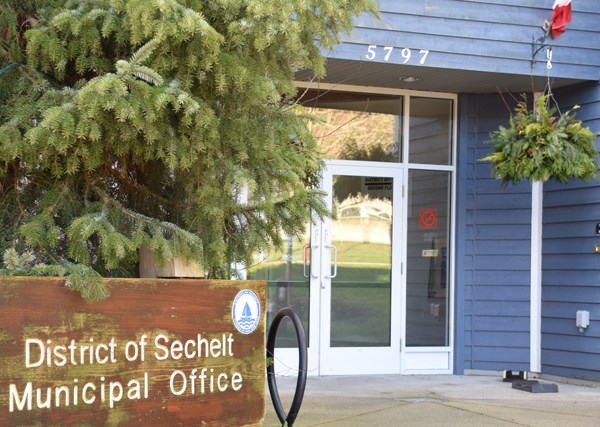Sechelt council adopted its 2020 budget May 8, after deciding to put off the final vote even though new rules from the province would have allowed it to adopt the budget after holding three readings on May 6.
The fast-track option is one of the measures introduced by the province to help local governments do business during the pandemic, but Coun. Alton Toth said at the May 6 council meeting that he was uncomfortable with the “optics” of using it for the budget bylaws.
“I think that’s the prudent thing to do this year – take it right to the deadline,” Toth said.
That deadline is May 15, when the final budget needs to be received by the province.
When council reconvened to give the final readings to the budget bylaws, Coun. Matt McLean praised the emphasis on “protecting our assets and building safe spaces.”
“I know tax time is going to be difficult for many this year, but if we don’t address many of these infrastructure challenges now, there are going to be many more challenging tax times moving forward due to crumbling infrastructure,” he said.
Coun. Brenda Rowe characterized the budget as “taking care of the business we need to take care of before it costs twice as much money.”
Mayor Darnelda Siegers said the projects in the budget will put Sechelt in a position to take advantage of any infrastructure funding opportunities offered by the federal or provincial governments as part of a pandemic recovery plan.
The budget includes an overall tax increase of 3.8 per cent, up marginally from the 3.5 per cent council had been working toward.
The slight increase was mainly because BC Assessment’s final figures on the value of residential properties in the district, which are the main source of tax revenue, was $10 million lower than the preliminary numbers the budget was built on.
Earlier in the meeting, director of finance Dave Douglas was asked if he’d received any explanation from BC Assessment of the reasons for the change.
Douglas said that three large vacant properties bordering on the Seawatch subdivision applied for, and were granted, reassessments.
When the 2020 assessments were first released, the largest of the properties, a 27.5-acre (11-hectare) block at 6453 Gale Ave. North and bordering on Crowston Road, owned by the developer Concordia Seawatch, was assessed at $2.7 million. It is now assessed at one dollar, as are two other vacant properties on Crowston valued originally in the $400,000 range.
All three of the reassessed properties were included in the Feb. 15, 2019 evacuation order for Seawatch, but are outside the fenced-off area.
Asked by Coast Reporter in January why the properties had not seen the same radical loss of value as the others in the Seawatch evacuation zone, deputy assessor Brian Smith said BC Assessment was trying to gather more information.
“Those properties, being outside of that subdivision, we didn’t include … but we are taking a look at that based on some of the inquiries we’ve had from property owners,” Smith said at the time.
Douglas told council his department was not aware that the property owners had successfully applied for a review.
“That was news to us,” he said. “Often the municipality is involved in something of that nature.”
Douglas also said he plans to meet with BC Assessment to discuss the issue. “I plan to make the case that there’s some value there and they shouldn’t be a dollar.”
The 3.8 per cent overall tax increase means a $78 increase in the municipal portion of the tax bill for a home assessed at $651,100 and a $156 increase for a commercial property worth $912,000.
Sewer user fees will rise by $123 for residential properties and $261 for commercial properties. The water parcel tax on all property classes will go up by $14.



